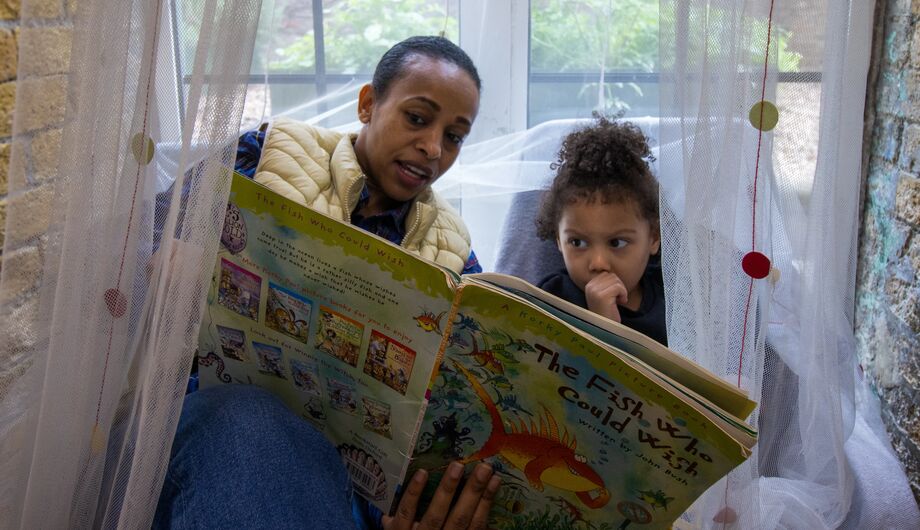
Talking Early Years: In conversation with Frank Cottrell-Boyce
If you have been frog marched through books, why would you ever read for pleasure? The award-winning author and screenwriter Frank Cotterell-Boyce is the 13th Children’s Laureate of…
June 29th 2022
“Without doubt, social leadership makes a fundamental difference to the quality of early childhood education and society a fairer place.”
The first strand of the LEYF social pedagogy is leadership for excellence and this has always been an area of interest. Like anything, the subject continues to evolve and adapt to the context in which we operate. It was during a conversation with my co-author, Mona Sakr during lockdown that led us to agree that we needed to write a book and explore the notion of social leadership – specifically in the Early Childhood sector (not just in England but internationally). The result was Social Leadership in Early Childcare Care and Education (ECEC) which includes conversations with 15 ECEC leaders from across the world.
The book is Social Leadership in Early Childhood Education and Care: An Introduction
Leadership is very often under a spotlight and that is because good leadership makes a positive difference to the success of countries, organisations, teams and helps them drive forward and achieve their purpose. This is no different for a nursery (whether solo or a group) or any of the other pre-school settings.
My leadership story is about redesigning a small charity into London Early Years Foundation (LEYF), a social enterprise that could marry business and pedagogy into a model which could deliver a social purpose more effectively. Our purpose is to help change the world one child at a time by creating a nursery business model and pedagogy which provides accessible high-quality affordable Early Years education and care. Why? – because too many children, especially those living with disadvantage or poverty, are excluded from attending high quality nurseries because they are unaffordable or unavailable. This is despite the UN Convention of Rights the Child Article 28 or the Global Monitoring Report (2010) which clearly referenced the ‘clear remediable injustice’ when disadvantaged children are not provided with educational opportunities that may benefit individuals and societies.
What many people fail to recognise is that working with children is highly political. Children are the litmus test of society and every new idea, change or disadvantage tends to be felt by them first. Understanding this is essential so that leaders can articulate how these challenges impact on the rights of a child and the concept of social justice.
The process of writing this book was a joyful process and one that was enhanced by the technological competence forced on us by the pandemic. Six months earlier, although we could facetime, interviewing someone in Australia or Turkey at professional level was expensive unless you had access to a high-quality conference call facility which is not usually a resource found in nurseries (although we could do a great improvisation with two yogurt pots and a string).
Our book addresses how we lead with purpose no matter where you are positioned in the complex, diverse and fragmented ECEC sector. The pandemic highlighted how so few people actually understand why early education matters for children, how it supports their development and actually benefits society in the long term. A good start supported by high quality ECEC reduces a child’s risk of experiencing all the problems associated with poverty such as unemployment, entering prison and poor health. And, if things were bad for many children before the pandemic they are much worse now. Getting quality leadership and leadership development in ECEC right is crucial for enabling learning through a strong pedagogy, building community participation and giving children a voice.
Social Leadership in Early Childhood Education and Care: An Introduction, is about reinforcing this and building a model of leadership that supports how we do this consistently. We identify six levers to shape the model which is not about individuals making change by themselves but about creating and nourishing communities of practice that can foster social leadership across the sector.
By narrating the leadership of those who already lead with a social purpose in ECEC, we can encourage more conversations about social leadership. Have a read of the book and leave a review on Amazon so we can get a sense of what you think. Please pour a cup of tea, and enjoy our podcast where we talk frankly about the reasons we decided on the six elements that shape the model.

If you have been frog marched through books, why would you ever read for pleasure? The award-winning author and screenwriter Frank Cotterell-Boyce is the 13th Children’s Laureate of…

Change the Way you Greet them There is a lot of concern about recently qualified staff who appear…

Slow Pedagogy Slow pedagogy calls for compassion where we actively do something to address suffering. …